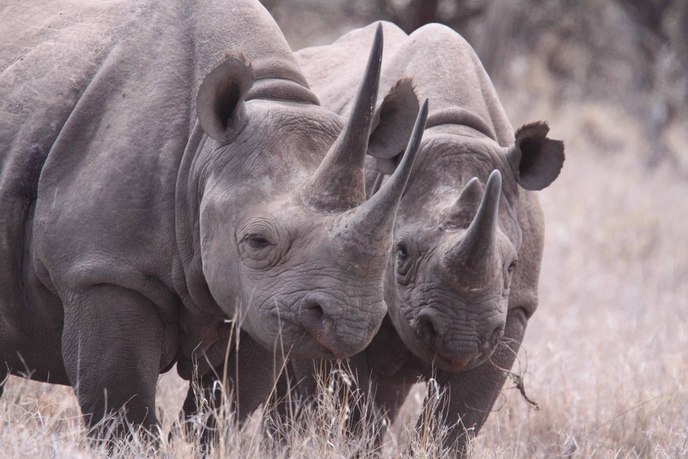In the early hours of Tuesday 7 March, keepers found the carcass of Vince, a four-year-old white rhinoceros, with its horn removed with a chain saw. Armed poachers broke into the zoo through a rear entrance during night-time, shot Vince in the head and sawed off the large horn. The police believe the poachers were interrupted before removing the second horn, and fled.
This poaching incident is truly shocking, and it is very sobering to think that armed criminals are now willing to break into European zoos to kill rhinos. While there have been previous cases of horn thefts from museums, auction houses and private collections in Europe, this is the first time that armed poachers broke into a zoo and killed a rhino for its horn.
How can we ensure the security of our rhinos in Europe?
In the wake of the poaching incident in France, many zoos have been taking measures to increase their security and ensure the safety of both the staff and animals. In the UK, the police are set to visit every zoo or park housing rhinos to evaluate security measures and discuss any steps forward. In the Czech Republic, Dvůr Králové Zoo decided to start a process of dehorning its 21 resident rhinos in response to the incident at Parc zoologique de Thoiry earlier this month. The first of its rhinos, a white rhinoceros Pamir, was anesthetised and dehorned on Monday 20 March. The authorities are hoping that this will help increase the security of the animals, and discourage poachers from targeting the Zoo.
As Susie Offord-Woolley, Managing Director at Save the Rhino highlights, the zoos are now facing increased pressure to both ensure the welfare of its animals and provide the essential security. Despite the growing fear of armed poachers attacking zoos across Europe, we believe that there is no “one-size-fits-all” solution. Zoos should follow the advice of EAZA, the European Association of Zoos and Aquaria, and evaluate security measures on an individual basis.
The current poaching crisis has been escalating since 2008 and is being driven by the increasing demand for rhino horn in countries like Vietnam and China. Rhino horn is mistakenly believed to have medicinal purposes, and more recently, is now also commonly perceived as a status symbol to display someone’s success and wealth. The incident at Parc de Thoiry represents a new development in the poaching crisis, with armed criminals killing a rhino in captivity on a European soil. It highlights the need for effective enforcement and security measures not just in Africa and Asia, but also in Europe and around the world.
You can read more about the illicit demand for rhino horn here, and find out more about the question of dehorning rhinos in our ‘Thorny Issues‘ section.









